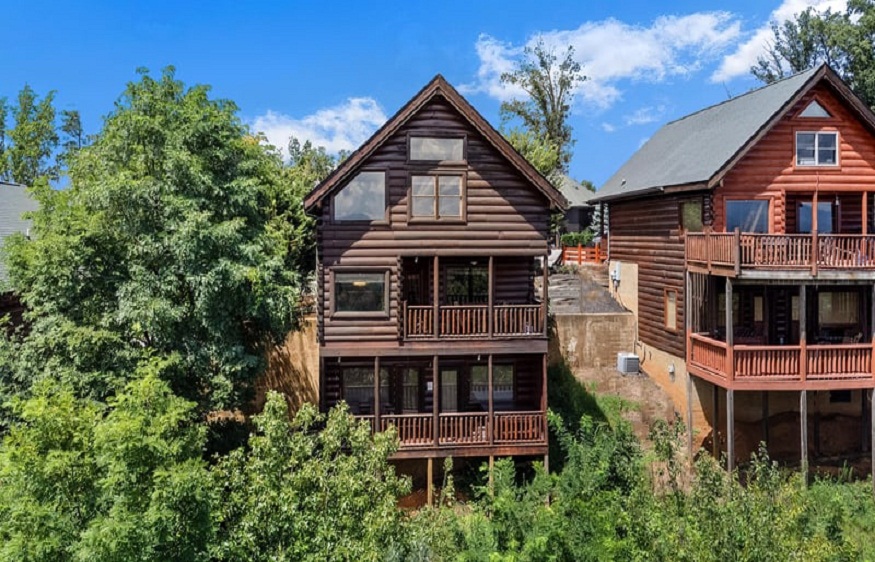A floating deck, sometimes called a freestanding deck, is a versatile outdoor structure that sits on the ground rather than being attached to a house or building. These decks are supported by concrete blocks or footings, which means they “float” above the soil without permanent foundation work. Whether you want a cozy place to relax or an entertainment area for gatherings, a floating deck can be a fantastic option. Like any home improvement project, though, it comes with both advantages and considerations.
Pros of a Floating Deck
- Flexible Placement
One of the biggest advantages of a floating deck is that it can be built almost anywhere on your property. Because it isn’t anchored to a building, you can place it in the middle of a yard, near a pool, or tucked away in a private garden area. This flexibility gives you more freedom in design and functionality. - Easier Installation
Floating decks don’t require the same level of construction as attached decks. There’s usually no need for deep post holes, heavy-duty foundations, or permits in many areas (though it’s always important to check local rules). The simpler installation process means less disruption to your yard and potentially faster completion times. - Budget-Friendly
In many cases, floating decks cost less to build than traditional decks because they require fewer materials and less labor. You can also scale the size to fit your budget—starting small and expanding later if needed. - Portability and Adaptability
While not exactly something you can move around every weekend, floating decks can be dismantled or relocated more easily than permanently anchored decks. This is especially helpful if you think you might want to change your backyard layout in the future. - Great for Uneven Terrain
If your yard isn’t perfectly level, a floating deck can still work. Adjustable supports can help create a level surface even on sloped or uneven ground, avoiding the need for major landscaping changes.
Cons of a Floating Deck
- Limited Height Options
Floating decks typically sit close to the ground, usually less than 30 inches high. This makes them ideal for single-level lounging spaces but less suited for situations where you need a deck to match an upper floor or raised entryway. - Stability in Certain Conditions
Because they aren’t anchored deeply into the ground, floating decks may shift slightly over time, especially in areas with heavy frost or unstable soil. Using proper supports and materials can minimize this issue, but it’s still something to keep in mind. - Shorter Lifespan Without Maintenance
Like any outdoor structure, a floating deck needs regular care. Without proper sealing, cleaning, and inspections, wood can warp or decay faster than in a raised, ventilated deck design. Choosing durable, weather-resistant materials helps extend its lifespan. - Potential Permit Requirements
While some floating decks don’t require permits, this isn’t always the case. Rules can vary depending on deck size, height, and local building codes. Failing to confirm requirements beforehand can lead to delays or fines.
Making the Most of a Floating Deck
If you decide a floating deck is right for you, there are a few tips to help you maximize its benefits:
- Plan for drainage to prevent water from pooling beneath the structure.
- Use quality materials that can withstand your local climate.
- Incorporate shade or covers for comfort in sunny areas.
- Add personal touches like railings, built-in seating, or planters to make it more inviting.
Final Thoughts
A floating deck offers a wonderful balance of beauty, function, and flexibility. It’s a great way to create an outdoor living space without the commitment and complexity of a traditional attached deck. While it does come with some considerations—like height limitations and maintenance needs—the pros often outweigh the cons for homeowners looking for a cost-effective, customizable backyard upgrade. With proper planning and care, a floating deck can become one of the most enjoyable features of your property for years to come.
This post was written by a professional at Supreme Marine Floating Docks. Supreme Marine Floating Docks is dedicated to providing top-quality floating dock services Ft Lauderdale and marine accessories that combine durability, innovation, and superior performance. While we are a new brand, our team brings over 50 years of combined industry experience, making us a trusted name in the marine world. We are passionate about designing and delivering products that meet the highest standards, ensuring reliability and longevity in all marine environments. Whether for residential, commercial, or recreational use, our docks are crafted with precision and care, setting a new benchmark in the industry. At Supreme Marine, we don’t just build docks—we create lasting solutions.




